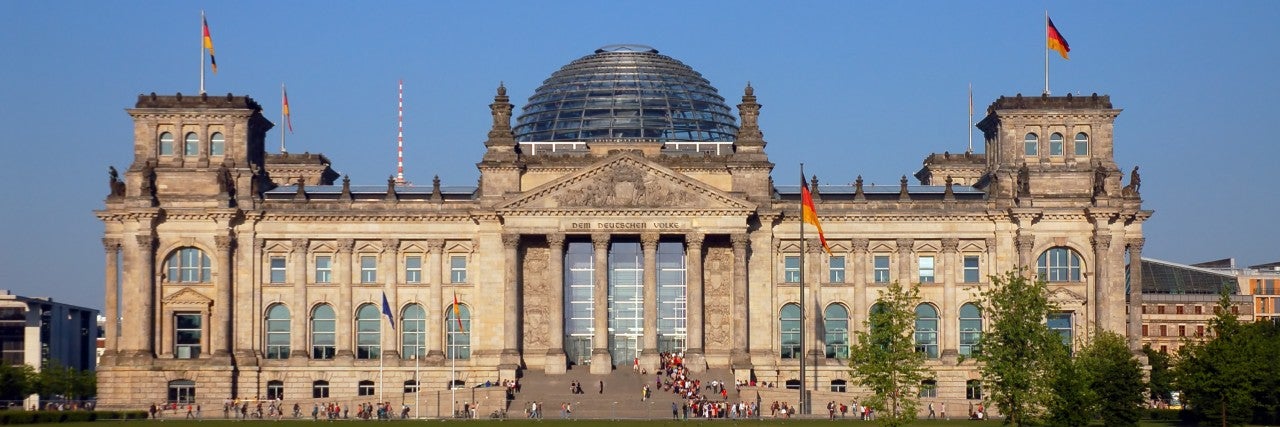November 24, 2017 — Berlin, Germany
Amid the tumultuous and jarring political developments in transatlantic and European affairs over the past decade, Germany has been a bedrock of stability, with Chancellor Angela Merkel a key global leader. However, German federal elections on September 24 tossed her leadership and German politics in general into a political tailspin, the end of which is not in sight.
The new right-wing populist Alternative for Germany (AfD) party attracted the support of 12.6% of the electorate, and for the first time since World War II, the Bundestag, Germany’s parliament, will have a large right-wing bloc with members who express revisionist views and even glorify the Nazi past. Although largely inexperienced, these new members of parliament are making ample use of their new political platform to promote anti-Muslim, anti-immigrant, anti-European, and even government-skeptical points of view.
Following the breakdown of government coalition negotiations on November 19, German politicians and voters are concerned about the prospect of a caretaker government continuing for many more months—and this at a time when German leadership is needed more than ever to calm political convulsions tearing at the fabric of European unity.
But Germany is dealing with its own political disputes on issues such as immigration, climate, tax policy and welfare subsidies, leaving it with diminished capacity to fight anti-EU sentiments. The complete break-down of coalition negotiations is a novum in post-WWII Germany, where voters have usually prized stability and consensus. Indeed, after a difficult start, the four-party negotiations among Chancellor Merkel’s ruling Christian Democratic Union (CDU); its Bavarian sister party the Christian Social Union (CSU); the liberal Free Democratic Party (FDP); and the Green Party seemed to be inching toward success, with the parties agreed on the need to modernize and reform government structures and policies.
Once the Free Democrats (FDP) walked out of the coalition negotiations, Germany faced the prospect of a repeat election next spring. Observers speculate this would strengthen the smaller parties, including the far-right AfD, while weakening further the two largest parties, the center –right Christian Democrats and the center-left Social Democrats. This erosion of support for major established political parties follows a larger European trend that has reconfigured the political landscape of countries such as France, Belgium, and the Netherlands.
While other European countries have maintained government affairs with caretaker governments for months on end, it is an unaccustomed situation for the German electorate and politicians. Despite speculation that Chancellor Merkel might choose to exit the political stage to ease the path to a solution, she made clear she has no intention of stepping down. A broad party appeal by Federal President Frank-Walter Steinmeier to resume negotiations rather than bank on a new election has prompted some rethinking on the part of his own party, the Social Democrats, who initially refused to negotiate following their disappointing showing in the election. Some SPD parliamentarians now favor coalition negotiations, while others advocate a CDU-led minority government, something that postwar Germany has never experienced.
Although Germany’s political future remains unclear, the unsuccessful coalition negotiations brought some unexpected results. Chancellor Merkel’s embattled CDU rallied unexpectedly, sharpening its own political profile. The negotiations strikingly underlined how close the CDU and Green Party agendas are on core matters of security, European unity, transatlantic affairs, environment, and human rights. For both parties, the U.S. and Israel remain major anchors of the values that shape liberal democracy. But it remains unlikely that the two parties can by themselves achieve a majority, and so a new election is unlikely to result in a more decisive outcome.
The stakes for determining Germany’s future as a European leader have seldom been higher - or more uncertain. Critically important is ensuring that whatever the election outcome, Germany will remain a key force in countering intolerance, populism, and hatred in Europe, and a supporter of Israel and the transatlantic bond.



